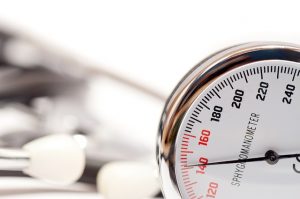The direct and indirect connection between hypertension and cigarette smoking
It is common to wonder if smoking can cause hypertension or else in other words high blood pressure. First, let’s start with the basics: what is high blood pressure, and is it a problem? Then we will see the effects of smoking on blood pressure.
What is hypertension or else what is high blood pressure?
Hypertension is a frequent illness in which blood is pumped at elevated pressures through blood vessels, or arteries.
Blood pressure is the force of blood pressing against the artery walls while the heart beats. When this force is higher than the prefered range for age, sex and ethnicity it is known as high blood pressure or else in other words hypertension.
According to the Centers for Disease Control (CDC), about 116 million American adults have high blood pressure — that’s about half of adults(47%).
The force of your blood pressing against the walls of your arteries is measured as the blood pressure. Every time your heart beats, blood is pumped into the arteries and then capillaries, end organs and then veins.
At the times your heart beats (contracts) and pumps blood, the blood pressure indicates the systolic blood pressure which is the highest value. When the heart muscle relaxes the diastolic pressure, the lowest value comes up.
Together, these two readings are called your blood pressure reading and are measured in millimeters of mercury (mmHg). For example, a reading of 120/80 mmHg means a systolic pressure of 120 mmHg and a diastolic pressure of 80 mmHg.
A normal reading is around 120 over 80 (120/80).

If your blood pressure is consistently 140/90 or higher, you have high blood pressure or hypertension. This needs to be diagnosed by a doctor with proper blood pressure measuring in minimum least two different occasions.
What are the bad effects of hypertension?
Over time, if untreated, high blood pressure can cause blood vessel damage that leads to heart disease, kidney disease, stroke, and other problems.

Since it causes no symptoms and can go undiscovered and left alone for years and lead to serious adverse effects on health, hypertension is commonly referred to as the silent killer.
Why smoking is bad for your health?
Smoking can affect your body in many ways, raising your risk of several serious health conditions:
- Cardiovascular diseases, including heart disease
- Neurological diseases like stroke
- Respiratory diseases, such as chronic obstructive pulmonary disease (COPD) and lung cancers
- Respiratory infections, such as pneumonia (a serious lung infection) and chronic bronchitis (swelling of the air passages that lead to the lungs)
- Other types of cancer, including cancers of the mouth, throat, esophagus (the tube that connects your mouth to your stomach), bladder, kidney, pancreas, cervix (opening to the womb), and stomach.
Smoking affects peripheral blood vessels
Smoking can cause high blood pressure, which is a risk factor for heart attack and stroke. Cigarette smoking also increases the risk of peripheral vascular disease, which increases the risk of heart attack and stroke.
Smoking increases blood vessels and leads in increased risk in developing hypertension whereas, when smoking is stopped the 10-year risk of developing hypertension is reduced as the studies have shown.
Direct damage to blood vessels
Cigarette smoking causes damage to the walls of your blood vessels, which makes them more likely to become narrow and restricts the flow of blood. This can increase your blood pressure. Smoking damages the lining of your artery walls (endothelium), making them more likely to narrow and restrict blood flow.
Reduced elasticity of blood vessels
Smoking also damages and tightens the elastic fibres found in artery walls, making it harder for your arteries to expand and contract properly. This can also force your heart to work harder to pump blood around your body, increasing your blood pressure further. Stiffness of the arteries as well as promoting inflammation of the blood vessels occur as an result of cigarette smoking.
Nicotine increases adrenaline level
Nicotine in cigarettes also causes a temporary increase in your blood pressure by stimulating your body to release adrenaline.
Smoking cigarettes increases your blood pressure for several minutes after you finish a cigarette. The more cigarettes you smoke, the longer your blood pressure stays up.
Increased risk of stroke and heart disease
Smoking causes your heart to work harder and increases your risk for heart attack and stroke. Cigarette smoking causes lipid modification in blood vessels and alter anti-thrombotic and pro-thrombotic factors. This leads to hypertension as well as atherosclerosis and thromboembolism.
How to quit smoking?
Hopefully, you have now found the answer to your question that ‘can smoking cause high blood pressure’.
If you have high blood pressure (hypertension), ask your doctor about quitting smoking and ways to reduce your blood pressure.


